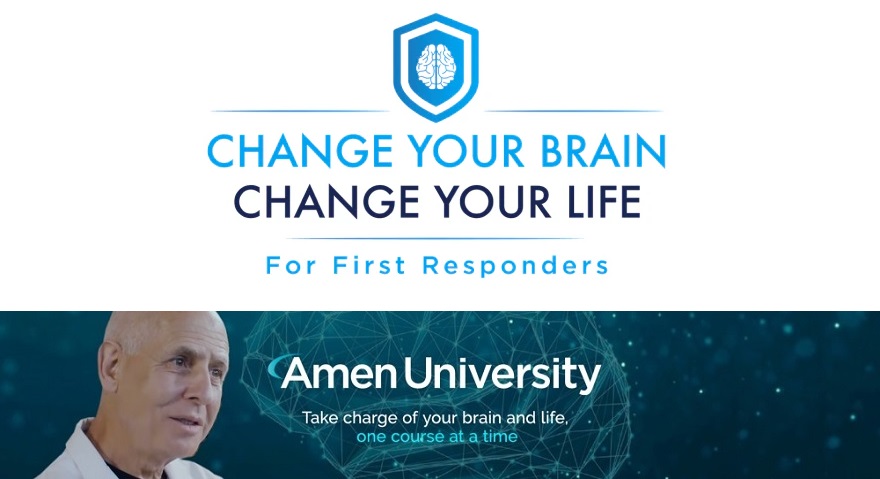
First responders see what most people only hear about in passing. Sirens, scenes, split second decisions, angry crowds, silence after a bad call, these are not unusual days. Over time, the brain starts to adapt to that world, sometimes in ways that protect performance, sometimes in ways that quietly erode sleep, patience, memory, and relationships.
You cannot remove the stress from police, fire, EMS, dispatch, or corrections work. You can, however, understand what constant pressure does to the brain and what practical steps help it recover. Brain health is not a soft add on. It is part of staying sharp, safe, and human over a long career.
Contents
What Chronic Stress Does To A First Responder’s Brain
Short bursts of stress are exactly what the brain is built for. Heart rate goes up, attention narrows, muscles prepare for action, and then, ideally, everything settles again. First responder work often gives you the first part without enough of the second.
The Alarm System Stays On High
Deep inside the brain, structures that detect threat start to respond more quickly when they are activated again and again. That is useful at a scene. It is less helpful when you are at home trying to relax, sitting at a restaurant, or watching your kids play.
Many responders notice this as jumpiness, scanning every room, sitting with their back to the wall, or waking up at small sounds. The brain is doing its best to keep you safe. Without recovery time, it simply forgets how to stand down.
Attention And Memory Take Hits
High stress, poor sleep, and repeated trauma can change how the brain pays attention and stores memories. You might notice it as increased forgetfulness, trouble concentrating on routine tasks, or difficulty shifting gears between work and home.
This is not about IQ or dedication. It is about a brain that has been running in emergency mode for too long and is struggling to switch to other tasks.
Emotional Numbing And Quick Reactions
Emotional systems in the brain can tilt toward either numbing or overreaction. Some responders feel flat, as if nothing touches them. Others find themselves snapping over small things, crying unexpectedly, or moving from zero to rage in a heartbeat.
These are understandable brain responses to repeated exposure to danger and loss. Recognizing them as brain and stress effects is the first step in changing how you handle them.
Brain Health Basics That Matter Most
Brain science can get technical, but the basics that matter for resilience are straightforward. Four areas show up again and again: sleep, movement, food and substances, and connection.
Sleep As Your Brain’s Repair Shift
Sleep is when the brain clears waste products, files memories, and resets systems that manage mood and focus. Long stretches of short or broken sleep make every other coping skill harder to use.
Perfect sleep is unrealistic with rotating shifts and overtime. Better sleep is possible. Helpful practices include:
- Building a simple pre sleep routine, even if it is short, so your brain gets a repeated cue that it is time to wind down.
- Using darkening shades or eye masks after night shifts to block morning light.
- Keeping caffeine away from the last six hours before planned sleep when possible.
- Aiming for consistent sleep windows on days off instead of swinging between extremes.
Even small improvements in sleep quality can have outsized benefits for judgment and emotional steadiness.
Movement That Helps The Brain, Not Just The Body
Physical training is familiar in first responder jobs, but it is often framed only around strength or fitness tests. For the brain, regular movement acts like a built in stress regulator. It supports blood flow, improves mood, and helps process adrenaline after hard calls.
Movement does not have to be intense to help. Short walks, stretching routines after shifts, and moderate exercise a few times a week can all lower baseline stress. The key is consistency, not perfection.
Fuel And Substances That Influence Mood And Focus
What you eat and drink during and after shifts affects how your brain feels. Long gaps between meals, piles of fast food, and heavy use of sugar and energy drinks can lead to energy crashes, irritability, and fog.
Alcohol and other substances add another layer. They may feel like quick ways to relax or sleep, but over time they disturb sleep structure, worsen anxiety and depression, and change brain activity patterns.
Practical shifts include keeping snacks with some protein on hand, drinking water regularly, watching how much caffeine you use late in the shift, and being honest with yourself about how alcohol or other substances are affecting your mood, energy, and relationships.
Connection As A Protective Factor
Brains are wired for connection. Isolation increases the impact of trauma and stress. Many first responders pull away from family and friends when they feel overloaded, either to avoid burdening others or because they assume no one will understand.
Staying connected does not mean telling everyone every detail. It does mean keeping at least a few relationships where you can be honest about how you are doing, and where people are allowed to care about you, not just the uniform.
On Duty Strategies To Protect Your Brain
Brain support is not only an off duty project. Certain on duty habits can reduce the load on your nervous system and make recovery easier.
Micro Breaks And Reset Moments
Even short pauses during a shift can lower physiological stress. When the scene allows, taking thirty to sixty seconds to slow your breathing, drop your shoulders, and notice your surroundings helps reset your nervous system.
This is not about meditating between calls. It is about recognizing that your brain and body cannot sprint nonstop for twelve hours without a cost.
Team Check Ins After Tough Calls
Quick, honest check ins after particularly rough calls can lower longer term impact. Simple questions like, how is everyone doing, and what are you noticing right now, open the door for people to speak before stress gets pushed down and buried.
Formal debriefs are important for major incidents. Informal check ins matter for the steady drip of smaller calls that can add up over time.
Healthy Mental Habits About Mistakes
Mistakes and near misses happen in high risk work. How you think about them affects your brain health. Endless self blame keeps stress circuits firing long after the event. Healthy processing involves reviewing what happened, learning what you can, and then deliberately releasing the rest instead of replaying it endlessly.
Agencies that handle mistakes with fairness and learning, rather than only punishment, help protect the brains of their people and improve safety at the same time.
Off Duty Strategies For Long-Term Resilience
What you do after your shift is as important as what you do during it. Off duty brain care helps your nervous system learn that it is allowed to leave work mode.
Transition Rituals Between Work And Home
Going straight from a high intensity call into a quiet house without any buffer can be jarring. Simple transition rituals, such as a brief walk, a shower, a change of clothes, or a few minutes of quiet in the car, give your brain a signal that the environment has changed.
Some responders choose a specific phrase or routine when they walk through the door, for example, greeting family before checking devices or news. These small patterns help prevent work stress from spilling over quite as forcefully into home life.
Hobbies And Interests That Are Not About The Job
First responder work can become an identity, not just a job. While pride in the role is healthy, having non work interests gives the brain different kinds of stimulation and pleasure. Hobbies, creative projects, faith communities, or volunteer work in a very different field can all help.
Time spent on these activities is not wasted. It is part of keeping the rest of your identity alive so that your brain does not live only in crisis mode.
Talking About Calls In Ways That Help, Not Harm
Some people prefer to talk about hard calls. Others prefer to say very little. Either way, it helps to have at least one or two trusted people you can share with, whether that is a peer, a partner, a chaplain, or a therapist.
When you do talk, focusing not only on graphic details but also on feelings, physical reactions, and what is hardest now can be more healing. The goal is to help the brain file the experience, not to relive it over and over.

